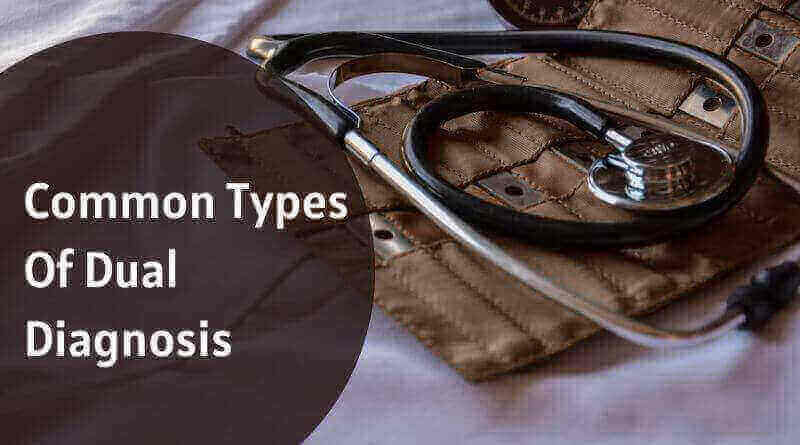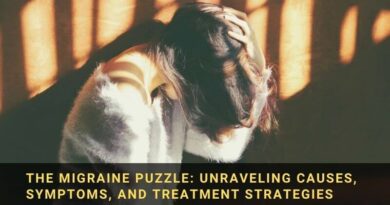Common Types Of Dual Diagnosis You Should Be Aware Of
Dual diagnosis occurs when a person is suffering from both a diagnosable mental disorder as well a substance abuse disorder. Unfortunately, this is a very common problem among those with mental illnesses and has the potential to make the symptoms of their mental illnesses significantly worse.
Some mental illnesses are more commonly diagnosed along with a substance abuse disorder. It’s important to know which mental illnesses these are as they can help you to know if you or a family member is at risk for a dual diagnosis.
Table of Contents
Most Common Dual Diagnosis
1. Cocaine Addiction And Anxiety Disorders
Despite being a stimulant, cocaine is often used to cope with an anxiety disorder as it initially provides feelings of overconfidence and reduces anxiety at the moment. However, over time it often makes the anxiety worse and feelings of paranoia can set in.
2. Opioid Addiction And PTSD
Another very common dual diagnosis is opioid abuse disorder and PTSD. PTSD is associated with constantly feeling on edge as well as difficulty sleeping. Opioids can help with both of these symptoms by relaxing the mind and body.
3. Heroin Addiction and Depression
Heroin works by attaching itself to receptors in the brain and causing them to release massive quantities of dopamine. This can help the person to temporarily feel better. However, over time heroin addiction makes depression symptoms worse as it makes the brain dependent on heroin to release dopamine.
How Common Are Dual Diagnosis?
According to the National Institute on Drug Abuse, dual diagnosis affects approximately 7.7 million adults in the United States. Out of the 20.3 million adults living with a substance abuse disorder, 37.9% are also living with a diagnosed mental illness.
The percentage of people with mental illness that also have a substance abuse disorder is lower but still significant. Out of 42.1 million adults with a diagnosed mental illness, 18.2% also suffer from a substance abuse disorder.
Dangers Of Dual Diagnosis
Unfortunately, for those living with a dual diagnosis, the co-existence of the conditions tends to make the results of each one more severe.
Dual diagnosis increases the chances of poor medication compliance, suicide, and incarceration amongst other things. It also reduces the chance that a person will receive treatment for either of their disorders.
Out of the 7.7 million adults living with a dual diagnosis, less than 50% have received treatment for either of their conditions.
Why Does Dual Diagnosis Occur?
It is impossible to say exactly why dual diagnosis occurs because every case is different. Some may have started out with a mental illness and then began to use drugs as a way to cope. Others may have developed a mental illness as a result of their drug use.
However, some factors are known to contribute to the likelihood that someone develops a mental illness. Some of these factors include childhood trauma, family history, stress, pre-existing addiction, and pre-existing mental illness.
Childhood Trauma
One of the most common similarities between people with a dual diagnosis is childhood trauma. This is also the case when looking at the causes of the individual conditions. Both addiction and mental illness individually are more common in individuals that have experienced significant trauma.
If the child’s trauma was related to drug usage or mental illness in the home this further boosts the likelihood as they are more likely to model the behavior that they witnessed.
Family History
Although more research is needed on the topic, it is clear that there is a link between a family history of addiction and mental illness and the likelihood that someone will develop either or both of the conditions.
There are multiple genes that are known to affect addiction and mental illness that are passed down through families.
Another thing to consider when looking at family history as a risk factor is an environment that the person grew up in. Yes, genetics do have an impact on addiction, but even more important than that is the adults that the person saw growing up.
If someone was frequently around parental figures that used drugs they are more likely to see that as a normal coping mechanism and turn to drugs as an adult.
Stress
Another common risk factor behind dual diagnosis is stress. When someone is exposed to extreme stress they are more likely to begin to self-medicate with drugs or alcohol to escape that stress. Stress can also cause flare-ups in the symptoms of someone’s mental illness or trigger one to develop.
Pre-Existing Addiction
Out of the millions of adults that live with addiction, almost 40% also have a mental illness. This shows that one of the greatest risk factors for whether or not someone will have a dual diagnosis is if they already have one of the conditions.
It is unlikely that both conditions are going to spontaneously develop. Most of the time the person will have had one disorder for a while and will then go on to develop the other.
Pre-Existing Mental Illness
It is very common for someone who suffers from a mental illness to go on to develop a substance abuse disorder. This is because for many, substance abuse disorders start as self-medicating.
Not everyone has access to proper psychiatric care and illegal drugs, although harmful in the long run, can provide temporary relief from the symptoms of a mental disorder.
Key Takeaways
Dual diagnosis is a condition that occurs when a person is suffering from both a substance abuse disorder and one or more mental illnesses at the same time. They commonly develop as a result of someone trying to self-medicate the symptoms of their mental illness. However, there are many other causes including trauma and stress.
Unfortunately, those with a dual diagnosis tend to have worse symptoms for each of their diagnosis. This is because it is more difficult to medicate someone with multiple conditions and they are also less likely to seek treatment.
To learn more about the dangers of dual diagnosis and why it occurs visit Achieve Wellness Recovery at https://achievewellnessrecovery.com/.




